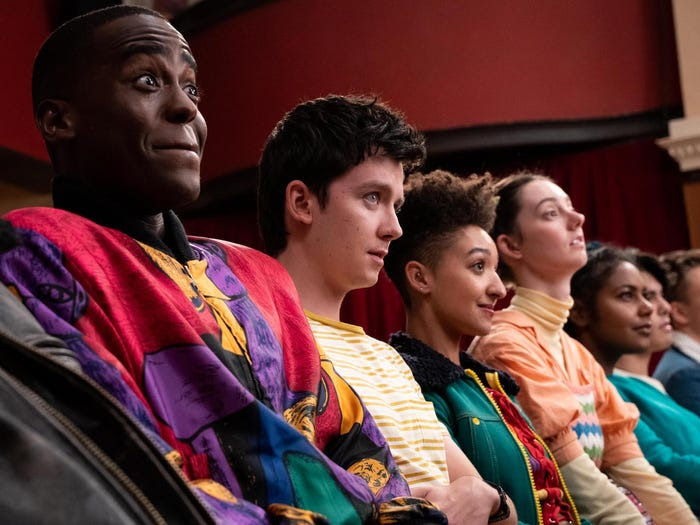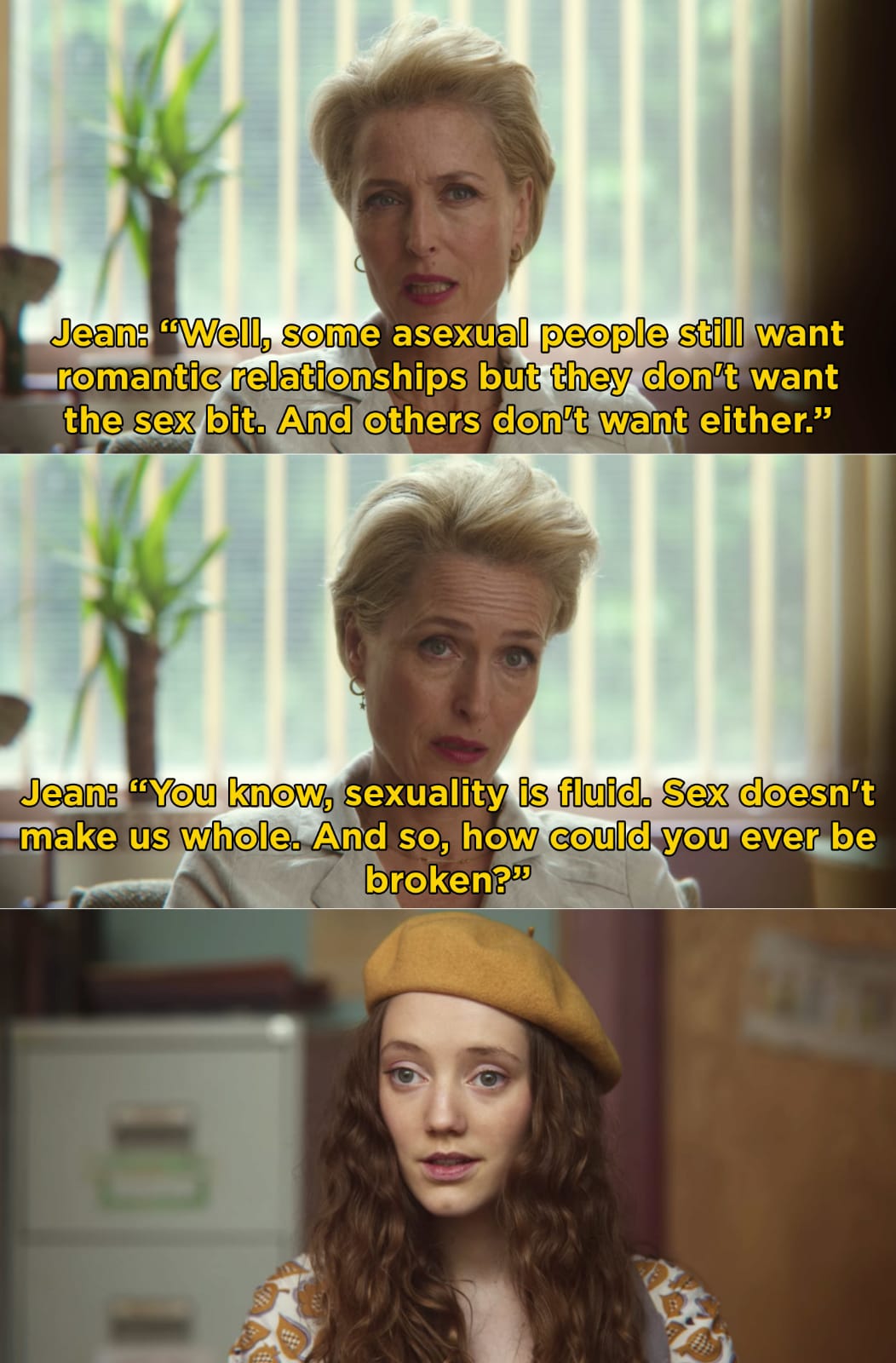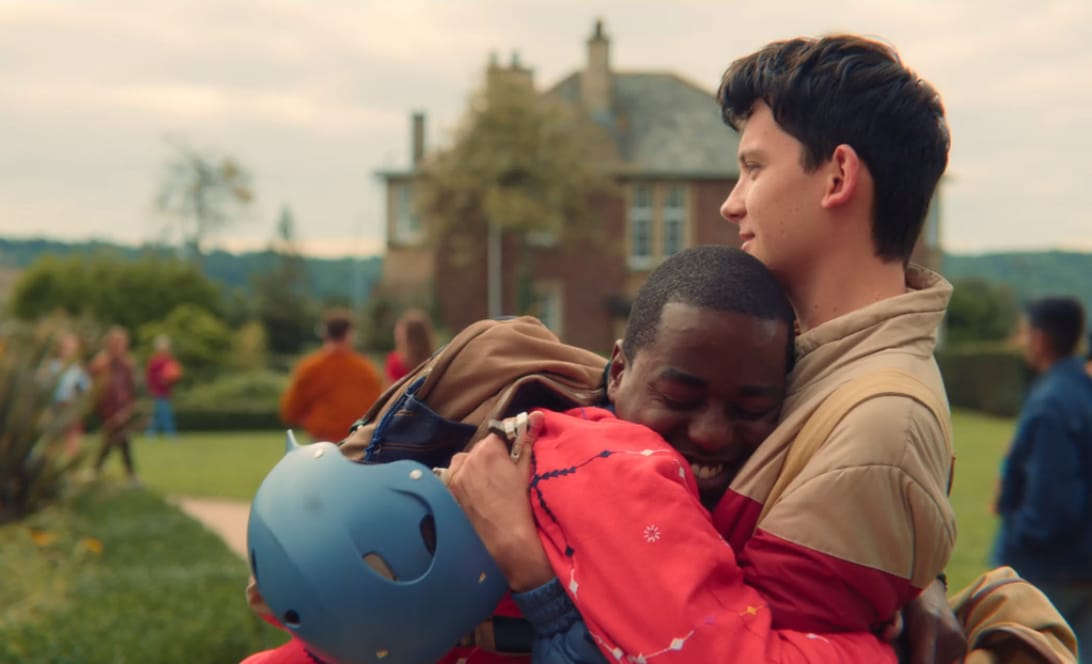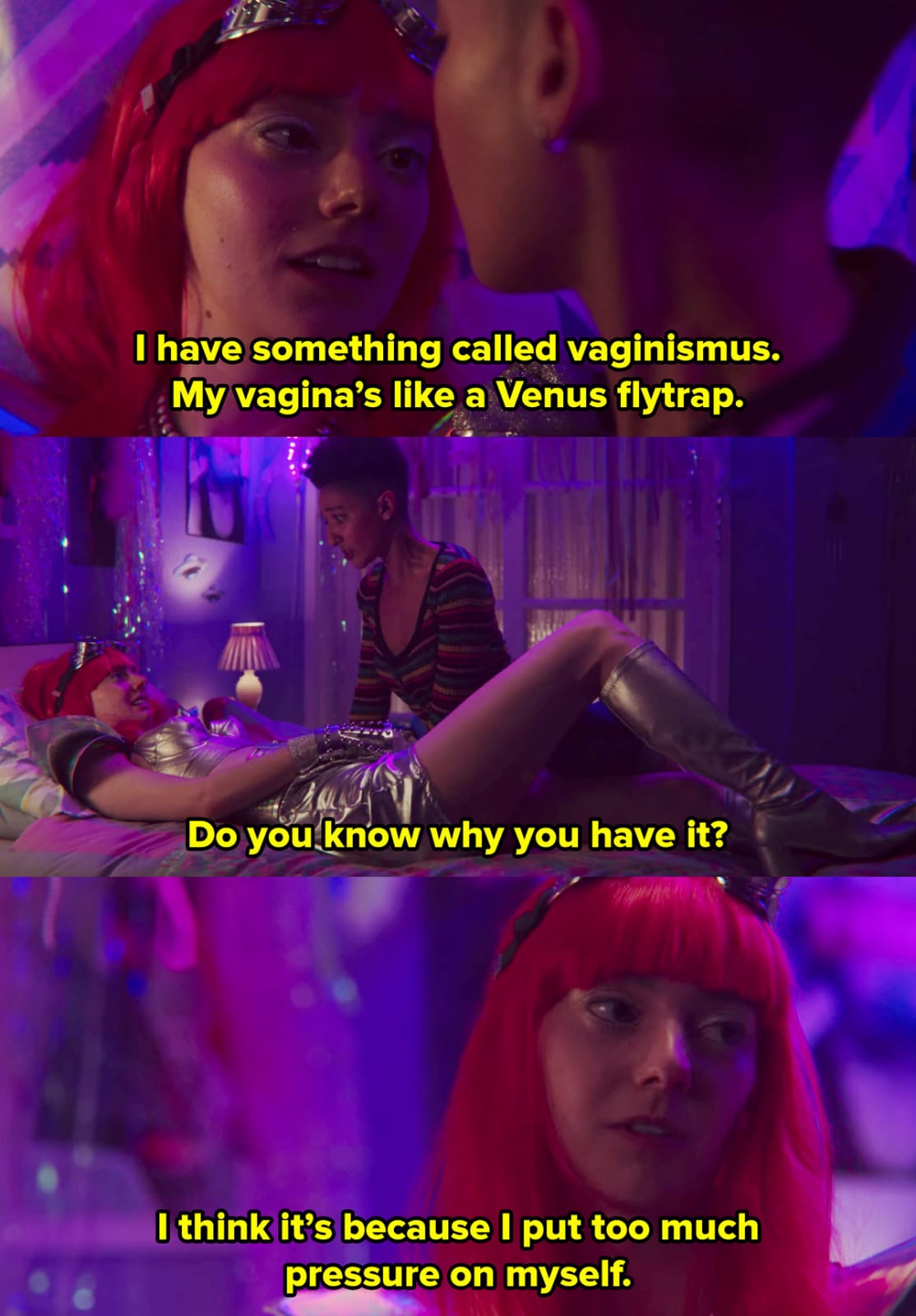If you’re someone who owns a Netflix subscription, then you’ve probably heard of, if not binged, Sex Education. And if you haven’t, we’re sure you’ll add it to your list as soon as you finish reading this blog (Seriously, do it now).
It has quickly gained popularity and for all the best reasons. While we often say that TV shows and films aren’t the best place to learn about sex from, this is the one case where we’re happy to feel differently. Netflix’s sex education, much like name itself takes on matters of sex, sexuality, mental health, intimacy, love and other themes that adolescence is often defined by in the form of a lighthearted comedy-drama.
At it’s core, Sex Education is a warm, heartfelt and honest representation of the beauty and awkwardness of what it’s like to be a teenager. What sets it apart from other teen dramas is that while other dramas either shy away or skirt around subjects that might be considered too complex or taboo, Sex Education embraces them.
With it’s fresh new season out, we decided it was the perfect time to write a little love letter to the show by listing down some of the 6 things that Netflix’s Sex Education normalized gracefully (spoiler alert).
STI prevention and destigmatization:
the very first episode of Season 2 starts with the students of Moordale freaking out over what they think is a chlamydia outbreak, only to turn out to be a classic case of mass hysteria. The episode deftly busts common STI myths with accurate, desensationalized information and proves that the stigma and misinformation around STIs is much much more dangerous than STI’s itself. Other than prevention, the episode also emphasized the fact that STIs aren’t shameful and can be treated easily if caught early.
Sex doesn’t make us whole:
Sure, the show is called sex education and often revolves around sex. Sex is an important part of life but it’s important to remember that that’s all that it is. A part. To some people it may not be a part at all! Much like the protagonist of episode 4 of Season 2, Florence who approaches Jean Milburn to talk about her lack of interest in sex. The trained sex therapist reassures that this is not abnormal and proceeds to tell her about asexuality. This is a huge moment for asexuality representation in pop culture. What she follows it up with is just as important.
“Sex doesn’t make us whole, so how could you ever be broken?”
I believe this is a sentiment that can be just as meaningful to allosesexual people as asexual people. Sex is great, but the increasing pressure and expectations around performing well in bed often give us an inflated view of it’s importance. It’s a slippery slope that can easily lead to self doubt when we fail to meet those expectations. All hail Jean Milburn!
Men being vulnerable and seeking therapy:
From “boys don’t cry” to “man up”, it’s no secret that the patriarchal nature of our society discourages men from being vulnerable about their feelings and subsequently from seeking help when they need it. According to a recent study only 60% of depressed men seek out treatment as compared to over 72% of women. Sex education’s new season tackles this issue spectacularly when Moordale’s disgraced ex headmaster Mr. Groff seeks out Jean Milburn to talk about his difficult childhood. The episode is a great study on how young boys are conditioned to fall into the trap of toxic masculinity and how it permeates to adulthood harming both them and the people around them.
Healthy platonic relationships:
While the different seasons of the show have played around with various, multiple romantic pairings, the true beating heart of the show are the platonic relationships. Otis and Eric and Maeve and Aimee stick by each other’s sides through heartbreaks and familial tensions even as they are shown capable of having disagreements with each other. Not only that but in the era of “no homo’s” and “girl crushes” where same-sex platonic affection is seen as an anomaly, it’s incredibly refreshing to see Otis and Eric and Maeve and Aimee be unabashedly physically affectionate with each other.
vaginismus and Non penetrative sex:
Research shows that about 75% of women can’t orgasm by penetrative sex alone and need some form of clitoral stimulation. This is a fact that is repeated in the show itself by Maeve in Season 3. And yet, pop culture, mainstream media and porn almost exclusively centers around p in v sex. This also contributes to the notion that penetrative sex is the only valid form of sex which is deeply damaging for queer and lesbian women, and also for people like lily who suffer from vaginismus. Vaginismus is a condition that causes contraction of vaginal muscles and affects around 5-17% of vulva owners around the world. As lily tells Ola in Season 2, it makes penetration, even fingering, extremely painful. Ola then suggests they engage in mutual masturbation and the couple are scene in a later season playing around with non penetrative sex positions.
Disabled people as sexual beings:
Disabled people are often rendered as asexual in pop culture and it’s a common misconception that they do not feel sexual desire and can’t have sex. Season 2 of Sex education introduces Isaac a character who is a wheelchair user. In Season 3, Isaac’s relationship with Maeve progresses into a romantic nature and the two share an intimate scene where Maeve asks him if he can engage in sexual activity. Isaac answers that he indeed can and guides Maeve through some of his pleasure spots. It’s a super touching scene which depicts that disabled people have sexual desire, can be sexually desired and can engage in sex, just like abled people. Issues like pain, motor impairments only means that they have sex that may look different.
What are your some of your favorite moments from the show? Write to us below!














